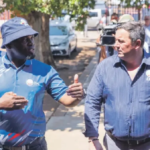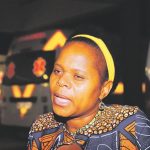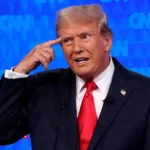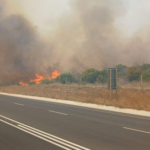As the nation eagerly awaits President Cyril Ramaphosa's announcement of his Cabinet, frustration and irritation have reached a boiling point. Insider sources reveal that Ramaphosa yesterday engaged in discussions with John Steenhuisen of the Democratic Alliance (DA) to address the number of Cabinet positions the DA has requested and the specific roles they desire.
However, the delay in the Cabinet announcement has drawn criticism from the Inkatha Freedom Party (IFP), one of the earliest signatories to the Government of National Unity (GNU) agreement. IFP President Velenkosini Hlabisa expressed the frustration felt by many South Africans during a press conference yesterday. He acknowledged that the formation of this Cabinet, being a Government of National Unity, would naturally face complexities due to the involvement of ten parties that have signed the Statement of Intent of the GNU.
"The past nine days have been filled with anticipation as the people of South Africa, the continent of Africa, and the international community eagerly await the president's announcement,” Hlabisa stated. He emphasized that the IFP has been actively engaged in the GNU discussions from the beginning, signing the Statement of Intent and agreeing on the broad principles for the functioning and focus of the GNU.
While the IFP initially remained unconcerned amid reports of a potential stalemate between the ANC and the DA, Hlabisa admitted that their concern has grown along with that of the entire nation. The IFP urged the ANC, the DA, and any other involved parties to conclude their outstanding issues promptly to allow the work of governance to begin.
Hlabisa further highlighted the impact of the Cabinet delay on provincial operations, which have been put on hold pending the announcement. He called on President Ramaphosa to exercise his prerogative to make appointments in the best interest of the country, expressing confidence in both the ANC and the DA's leaders.
While frustration mounts, analysts debate the role of the DA in this process. Some even suggest that the ANC should consider forming a GNU with the Economic Freedom Fighters (EFF) and the uMkhonto weSizwe party, led by former president Jacob Zuma, rather than relying on the DA.
Political analyst Professor Sipho Seepe argues that the DA has grown emboldened since being invited by the ANC to form a GNU. He warns that if the GNU is established, the ANC may find itself playing second fiddle to the DA, as the opposition party enjoys newfound confidence and leverage.
Seepe raises questions about Ramaphosa's decision to align with the DA, suggesting that he prioritized working with white interests and capital over forming an alliance with black parties such as the EFF and uMkhonto weSizwe. He argues that Ramaphosa's chosen partners have now created a situation that he must navigate, leaving little sympathy for his current frustration.
"The GNU is not going to be workable. The DA is going to lead the GNU," Seepe asserts. He further emphasizes the influence of white capital brought by the DA, raising concerns about the ANC's compromised position in the partnership.
As tensions escalate, the ANC's national executive committee (NEC) is set to convene this weekend to address the deadlock with the DA. Insiders confirm the meeting, indicating a need to defuse the situation following the DA's list of demands, which reportedly exasperated President Ramaphosa.
The nation eagerly anticipates the outcome of the NEC meeting, as it holds the key to resolving the impasse and allowing the seventh administration of South Africa to move forward. The formation of the GNU hangs in the balance, and all eyes remain on President Cyril Ramaphosa as he navigates this intricate web of political compromise and power dynamics.

Follow Us on Twitter











